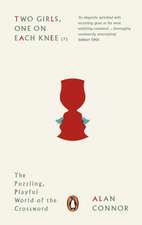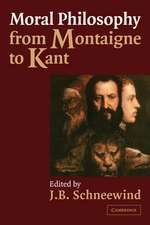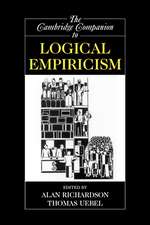The Enlightenment's Fable: Bernard Mandeville and the Discovery of Society: Ideas in Context, cartea 31
Autor E. J. Hunderten Limba Engleză Paperback – 16 feb 2005
| Toate formatele și edițiile | Preț | Express |
|---|---|---|
| Paperback (1) | 287.28 lei 6-8 săpt. | |
| Cambridge University Press – 16 feb 2005 | 287.28 lei 6-8 săpt. | |
| Hardback (1) | 809.48 lei 6-8 săpt. | |
| Cambridge University Press – 15 iun 1994 | 809.48 lei 6-8 săpt. |
Din seria Ideas in Context
- 9%
 Preț: 592.57 lei
Preț: 592.57 lei -
 Preț: 200.63 lei
Preț: 200.63 lei -
 Preț: 200.27 lei
Preț: 200.27 lei -
 Preț: 178.15 lei
Preț: 178.15 lei -
 Preț: 200.37 lei
Preț: 200.37 lei -
 Preț: 200.41 lei
Preț: 200.41 lei -
 Preț: 230.08 lei
Preț: 230.08 lei -
 Preț: 240.27 lei
Preț: 240.27 lei - 9%
 Preț: 627.25 lei
Preț: 627.25 lei -
 Preț: 224.34 lei
Preț: 224.34 lei - 11%
 Preț: 695.06 lei
Preț: 695.06 lei - 11%
 Preț: 693.36 lei
Preț: 693.36 lei - 9%
 Preț: 626.77 lei
Preț: 626.77 lei - 9%
 Preț: 626.34 lei
Preț: 626.34 lei - 11%
 Preț: 626.38 lei
Preț: 626.38 lei -
 Preț: 246.32 lei
Preț: 246.32 lei - 8%
 Preț: 530.32 lei
Preț: 530.32 lei - 9%
 Preț: 592.79 lei
Preț: 592.79 lei - 27%
 Preț: 648.34 lei
Preț: 648.34 lei - 9%
 Preț: 592.05 lei
Preț: 592.05 lei -
 Preț: 186.95 lei
Preț: 186.95 lei -
 Preț: 188.70 lei
Preț: 188.70 lei -
 Preț: 192.99 lei
Preț: 192.99 lei -
 Preț: 160.82 lei
Preț: 160.82 lei - 11%
 Preț: 583.02 lei
Preț: 583.02 lei -
 Preț: 178.45 lei
Preț: 178.45 lei - 11%
 Preț: 601.91 lei
Preț: 601.91 lei - 11%
 Preț: 585.25 lei
Preț: 585.25 lei -
 Preț: 185.17 lei
Preț: 185.17 lei -
 Preț: 276.77 lei
Preț: 276.77 lei - 11%
 Preț: 583.56 lei
Preț: 583.56 lei -
 Preț: 179.68 lei
Preț: 179.68 lei - 11%
 Preț: 584.90 lei
Preț: 584.90 lei -
 Preț: 375.56 lei
Preț: 375.56 lei -
 Preț: 284.17 lei
Preț: 284.17 lei -
 Preț: 285.54 lei
Preț: 285.54 lei -
 Preț: 298.92 lei
Preț: 298.92 lei -
 Preț: 282.87 lei
Preț: 282.87 lei -
 Preț: 288.04 lei
Preț: 288.04 lei -
 Preț: 284.56 lei
Preț: 284.56 lei -
 Preț: 273.35 lei
Preț: 273.35 lei
Preț: 287.28 lei
Nou
Puncte Express: 431
Preț estimativ în valută:
54.97€ • 57.55$ • 45.48£
54.97€ • 57.55$ • 45.48£
Carte tipărită la comandă
Livrare economică 05-19 aprilie
Preluare comenzi: 021 569.72.76
Specificații
ISBN-13: 9780521619424
ISBN-10: 0521619424
Pagini: 300
Dimensiuni: 150 x 228 x 20 mm
Greutate: 0.44 kg
Ediția:Pbk.
Editura: Cambridge University Press
Colecția Cambridge University Press
Seria Ideas in Context
Locul publicării:Cambridge, United Kingdom
ISBN-10: 0521619424
Pagini: 300
Dimensiuni: 150 x 228 x 20 mm
Greutate: 0.44 kg
Ediția:Pbk.
Editura: Cambridge University Press
Colecția Cambridge University Press
Seria Ideas in Context
Locul publicării:Cambridge, United Kingdom
Cuprins
Acknowledgements; A note on the text; Introduction and agenda; 1. The foundations of a project; 2. Self-love and the civilizing process; 3. Performance principles of the public sphere; 4. A world of goods; 5. Imposing closure - Adam Smith's problem; Epilogue: The Fable's modern fate; Bibliography; Index.
Recenzii
'Whenever anyone speaks, without bitterness … of man as a belly with two needs and a head with one; when ever anyone sees, seeks and wants to see only hunger, sexual desire, and vanity, as though these were the actual and sole motives of human actions; in brief, whenever anyone speaks 'badly' of man - but does not speak ill of him - the lover of knowledge should listen carefully and with diligence.' Nietzsche, Beyond Good and Evil
'Though words be the signs we have of another's opinions and intentions; yet, because of the equivocation of them is so frequent according to the diversity of contexture, and the company wherewith they go (which the presence of him that speaketh, our sight of his actions and conjecture of his intentions, must help to discharge us of): It must be extremely hard to find out the opinions and meanings of those men that are gone from us long ago, and have left us no other signification thereof but their books; which cannot possibly be undertook without history enough to discover those aforementioned circumstances, and also without great prudence to observe them. Hobbes, Human Nature
'Though words be the signs we have of another's opinions and intentions; yet, because of the equivocation of them is so frequent according to the diversity of contexture, and the company wherewith they go (which the presence of him that speaketh, our sight of his actions and conjecture of his intentions, must help to discharge us of): It must be extremely hard to find out the opinions and meanings of those men that are gone from us long ago, and have left us no other signification thereof but their books; which cannot possibly be undertook without history enough to discover those aforementioned circumstances, and also without great prudence to observe them. Hobbes, Human Nature
Descriere
Study of influence of Anglo-Dutch Enlightenment theorist, author of infamous maxim 'private vices, public benefits'.












